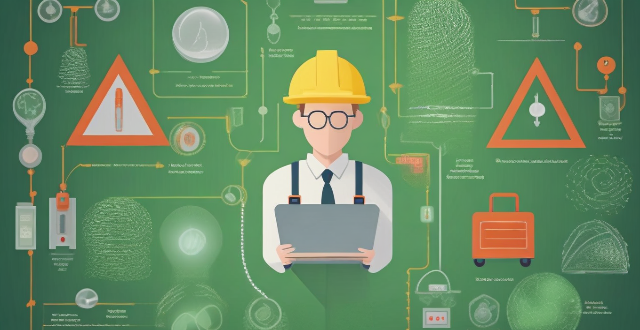Electrical safety is crucial in daily life, especially with modern technology. Basic principles include understanding electricity, maintaining equipment, using appropriate tools, avoiding direct contact with electricity, keeping away from water, following proper wiring practices, being cautious with extension cords, checking for overheating, and knowing your limitations. Following these principles can prevent accidents and ensure safe use of electrical devices.

Basic Principles of Electrical Safety
Electrical safety is a crucial aspect of our daily lives, especially in the modern world where we are surrounded by various electrical appliances and devices. To ensure our safety and prevent accidents, it's essential to follow some basic principles of electrical safety. Let's discuss these principles in detail:
1. Understanding Electricity
Before delving into the principles, it's important to understand what electricity is and how it works. Electricity is the flow of electrons through a conductor, such as a wire. It can be dangerous if not handled properly, as it can cause shocks, burns, or even fatalities.
2. Proper Maintenance of Equipment
Regular maintenance and inspection of electrical equipment are crucial for ensuring safety. This includes checking for any signs of wear and tear, damage, or faulty wiring. If any issues are found, they should be addressed immediately by a qualified professional.
3. Using Appropriate Tools and Equipment
When working with electrical systems, it's important to use the right tools and equipment designed for the job. This includes using insulated tools, wearing protective gear like gloves and goggles, and using voltage testers to ensure that no current is flowing before starting work.
4. Avoiding Direct Contact with Electricity
Never touch electrical components or wiring with your bare hands, especially when the power is on. Always make sure to turn off the power supply before beginning any work on an electrical system.
5. Keeping Away from Water
Water conducts electricity, so it's important to keep all electrical devices away from water sources. This includes avoiding using electrical appliances near sinks, bathtubs, or pools. Additionally, never touch electrical devices with wet hands.
6. Following Proper Wiring Practices
Improper wiring can lead to short circuits, overheating, and fires. It's essential to follow proper wiring practices, such as using the correct gauge of wire for the job, securing wires properly, and avoiding overloading circuits.
7. Being Cautious with Extension Cords
Extension cords should only be used temporarily and never as a permanent solution for power needs. Avoid running extension cords under carpets or across doorways, as this can cause tripping hazards and damage to the cords.
8. Regularly Checking for Signs of Overheating
Overheating is a common sign of an electrical problem. Regularly check for signs of overheating in appliances and devices, such as hot spots or burning smells. If you notice any issues, unplug the device immediately and have it checked by a professional.
9. Knowing Your Limitations
If you're unsure about how to perform a task safely or lack the necessary skills and knowledge, it's best to seek help from a qualified electrician. Attempting to do electrical work yourself without proper training can be dangerous and potentially life-threatening.
In conclusion, following these basic principles of electrical safety can help prevent accidents and ensure the safe use of electrical appliances and devices in our daily lives. Remember to always prioritize safety when dealing with electricity.